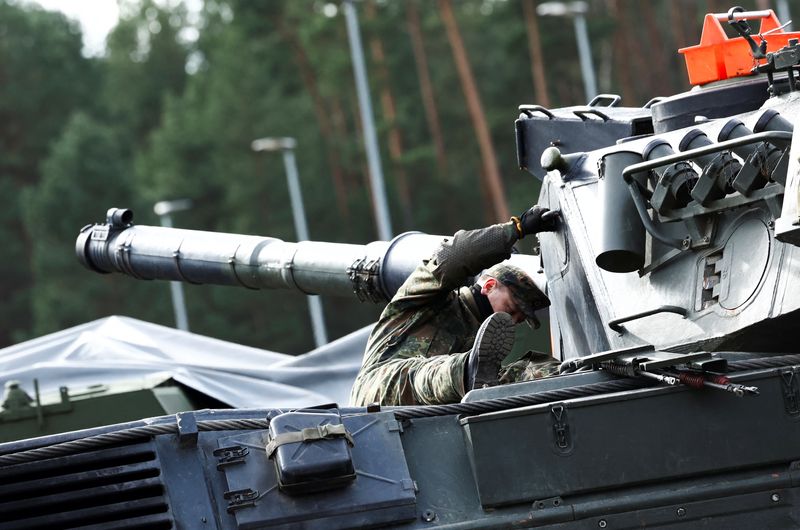FRANKFURT (Reuters) - Germany said on Saturday it was investigating an apparent eavesdropping of a call, after Moscow said a recording of German officers showed them discussing weapons for Ukraine and a potential strike by Kiev on a bridge in Crimea.
A German defence ministry spokesperson said on Saturday the Federal Office for Military Counterintelligence was investigating what appeared to be a case of eavesdropping, and that it was possible that the recording had been altered.
Chancellor Olaf Scholz, speaking on a visit to Rome, called the potential leak "very serious" and said it was "now being clarified very carefully, very intensively and very quickly".
Margarita Simonyan, a Russian state TV journalist and the head of Russia Today, posted the audio on her Telegram channel, and said it revealed German officers "discussing how to strike the Crimea bridge", which links Russia to the Ukrainian peninsula it seized and annexed in 2014.
Reuters listened to the 38-minute recording but could not independently confirm its authenticity.
Participants in the call discuss the possible delivery of Taurus cruise missiles to Kyiv, which Scholz has publicly so far firmly rejected. They also talk about the training of Ukrainian soldiers, and possible military targets.
Scholz, speaking on a visit to Rome, told journalists the potential leak was "very serious".
"That is why it is now being clarified very carefully, very intensively and very quickly. That is also necessary," he said.
Russia's embassy in Berlin did not respond to an emailed request for comment on Saturday about allegations of possible spying. A Russian foreign ministry spokesperson said on social media on Friday: "We demand an explanation from Germany", without detailing its particular concerns.
Russian Foreign Minister Sergei Lavrov spoke to journalists on Saturday about "cunning plans of the Bundeswehr (German armed forces), which became apparent due to the publication of this audio recording. This is a blatant self-exposure", Lavrov said.

Roderich Kiesewetter, a member of the German parliament, told the Handelsblatt newspaper that he considered the reports to be authentic.
"Russia is of course showing how heavily it uses espionage and sabotage as part of the hybrid war. It is to be expected that much more was intercepted and leaked in order to influence decisions, discredit and manipulate people," he was quoted as saying.